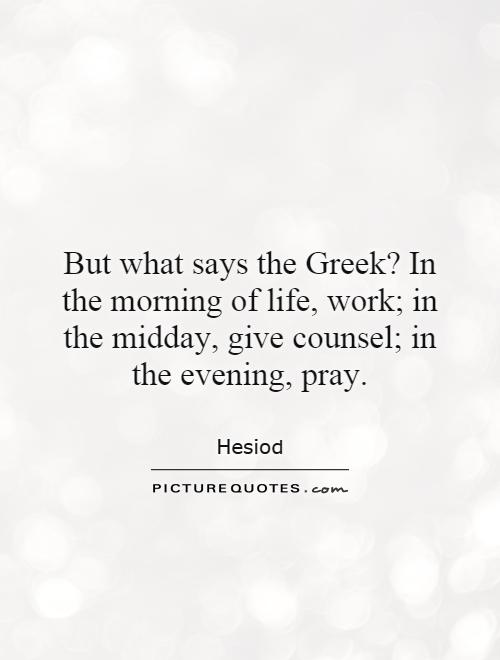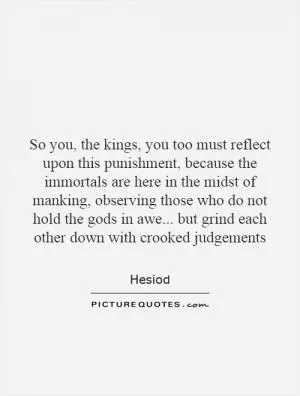But what says the Greek? In the morning of life, work; in the midday, give counsel; in the evening, pray

But what says the Greek? In the morning of life, work; in the midday, give counsel; in the evening, pray
Hesiod, a Greek poet and philosopher who lived in the 8th century BC, is known for his works that provide insight into the values and beliefs of ancient Greek society. One of his most famous works, "Works and Days," offers practical advice on how to live a virtuous and fulfilling life. In this context, the quote "But what says the Greek? In the morning of life, work; in the midday, give counsel; in the evening, pray" can be seen as a reflection of Hesiod's teachings on the importance of hard work, wisdom, and piety.Hesiod believed that in the morning of life, when one is young and full of energy, it is important to focus on work. This could mean physical labor, such as farming or craftsmanship, or intellectual pursuits, such as studying or learning a trade. By working diligently and honing one's skills, a person can lay the foundation for a successful and prosperous future.
As one enters the midday of life, Hesiod suggests that it is time to shift focus from work to giving counsel. This could mean sharing one's knowledge and wisdom with others, offering advice and guidance to those who seek it. By sharing one's experiences and insights, one can help others navigate the challenges and complexities of life, fostering a sense of community and mutual support.
Finally, in the evening of life, Hesiod emphasizes the importance of prayer. This could be interpreted as a call to reflect on one's life, to express gratitude for the blessings received, and to seek guidance and solace in times of need. By cultivating a sense of piety and humility, one can find peace and fulfillment in old age, knowing that they have lived a life of purpose and virtue.
Overall, the quote "But what says the Greek? In the morning of life, work; in the midday, give counsel; in the evening, pray" encapsulates Hesiod's teachings on the importance of hard work, wisdom, and piety in living a virtuous and fulfilling life. It serves as a timeless reminder of the values that have guided humanity for centuries, offering a blueprint for personal growth and moral development.












 Friendship Quotes
Friendship Quotes Love Quotes
Love Quotes Life Quotes
Life Quotes Funny Quotes
Funny Quotes Motivational Quotes
Motivational Quotes Inspirational Quotes
Inspirational Quotes